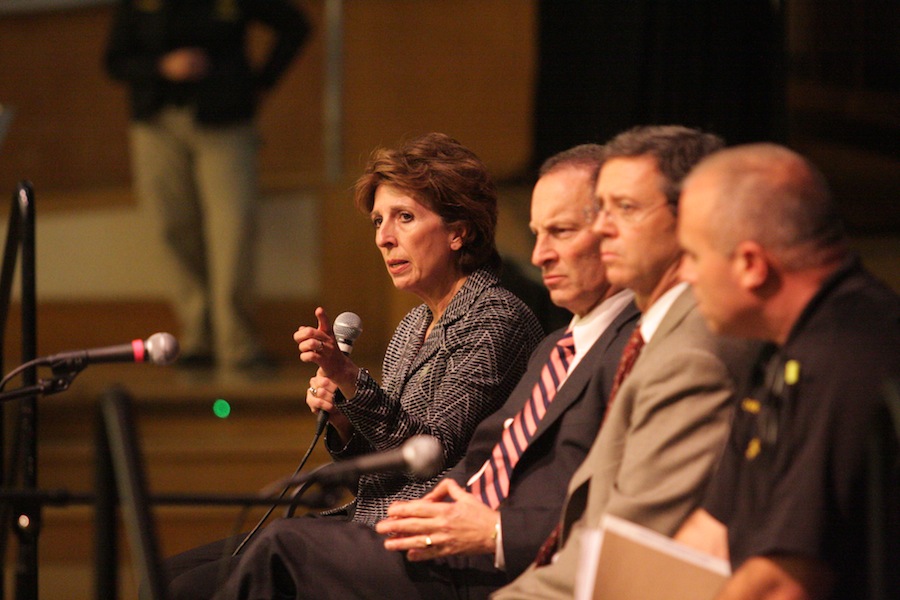
Tighter policies require greater approval of outside jobs
Due to new policies implemented after the investigation of former UC Davis Chancellor Linda P.B. Katehi, University of California (UC) administrators are no longer seeking compensated board seats outside of their senior management jobs at the UC campuses.
In 2015, the UC reported that the majority of approved board positions had compensation, with a total of $1.57 million for 42 managers. After establishment of the new policies, however, the 2016 report noted that 11 managers were approved for their outside activities from July 21 to Nov. 30, only three of which were paid positions that totalled to $9,510 in compensation.
“The new policy requires two levels of review and management approval,” a UC report read. “In addition, more detailed reviews are conducted to assess real or perceived conflicts of interest or commitment, and reputational risk.”
Activities now have to get approval through the campus chancellor, the president of the university or the chair of the Board of Regents. The 165 managers, which include UC President Janet Napolitano and campus chancellors, have also been limited to only two paid outside positions as opposed to the original three.
This decrease in UC administrators seeking additional compensated board seats comes after Katehi’s resignation last year, where she faced a series of controversies including holding seats on two for-profit boards.
Bernadette Fox, a fourth year-international relations and women’s studies major, believes the policies are in place to give the UC administrators “insurance” and hide their mistakes.
“Katehi and [other chancellors] have really tarnished the brand of the UC in the last year or so,” Fox said. “By them being able to review these positions they can vet them and make sure from an outside perspective it doesn’t look bad for the UC as a whole. […] I think it kind of put them in check as far as how greedy [they] want to be.”
Emily Breuninger, a fifth-year sociology major, thought the policies were unsatisfactory and did not demonstrate progress in terms of addressing the large amount these administrators make beyond their outside jobs.
“If Katehi can get away with taking all of these outside board seats over years and years, and it passes by unnoticed, then I don’t see what’s there to stop other chancellors or senior administrators from doing the same thing,” Breuninger said. “I don’t think there [are] sufficient mechanisms to ensure that there aren’t conflicts of interest or that chancellors are prioritizing their campus duties over their outside seats.”
Although the managers are allowed to maintain the board positions they currently take on, Fox thinks the decrease in approved board positions is because the administrators are trying to avoid humiliation, and not solely because of Katehi.
“Everything that the UC does is very well calculated and is about protecting the expansion of the business model of the UC,” Fox said. “It’s embarrassing to me that it took what it did to get such basic policies put into place.”
Breuninger believes that such policies will not help bring about change at the chancellor level, since the main problems reside within the regents.
“If the regents are corrupt then everything is corrupt,” Breuninger said. “Their actions are more egregious.”
Breuninger added that the UC administrators are afraid of criticism and losing their jobs.
“I don’t think that [the policies have] to do with any sort of change in heart on their part,” Breuninger said. “This is something that’s in the public eye right now, so I don’t have any hope or optimism that once public attention is turned away from it they won’t go straight back to their usual operation.”
The UC Davis and UC Office of the President’s media relations did not respond to The Aggie’s request for comments regarding the intentions of the new policies.
Written by: Jeanna Totah — campus@theaggie.org



